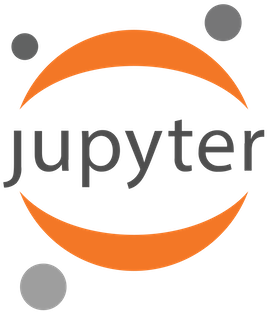Getting Started with Our Jupyter Notebooks
With CodeInterview, you have the flexibility to utilize Jupyter Notebooks for real-time collaboration in a way that best suits your needs. We provide four different environments to ensure a thorough and job-relevant interview. These versatile environments support a wide range of Data Science interviews. Learn more below.
Jupyter Notebook - Minimal
The minimal environment provides a lightweight setup for basic Python programming tasks and quick problem-solving exercises.
Utilizes the jupyter/minimal-notebook Docker image from Jupyter Docker Stacks.
This environment runs Python 3.11.9.
This platform includes essential utilities such as curl, git, nano-tiny, tzdata, unzip, and vim-tiny to support your development and interview experience.
Jupyter Notebook - R
This environment is tailored for data scientists and statisticians who use R for their analytical tasks.
Utilizes the jupyter/r-notebook Docker image from Jupyter Docker Stacks.
This environment runs R 4.3.3.
This notebook environment comes with the following installed Libraries:
- IRKernel - Supports R code in Jupyter notebooks.
- tidyverse - A collection of R packages for data science, available from conda-forge.
- caret - A package for building predictive models.
- crayon - Colored terminal output.
- devtools - Tools to make developing R packages easier.
- forecast - Functions for forecasting time series data.
- hexbin - Hexagonal binning for data visualization.
- htmltools - Tools for HTML generation and output.
- htmlwidgets - A framework for embedding JavaScript visualizations into R.
- nycflights13 - Flight data for all flights departing NYC in 2013.
- randomForest - A package for classification and regression based on a forest of trees using random inputs.
- RCurl - A package for general network (HTTP/FTP/...) client interface.
- rmarkdown - Dynamic documents for R.
- RODBC - Provides an interface to database management systems (DBMS) through the ODBC interface.
- RSQLite - SQLite database interface for R.
- shiny - Easy interactive web applications with R.
- tidymodels - A collection of modeling packages designed for modeling and machine learning using tidyverse principles.
- unixodbc - An ODBC driver manager.
Jupyter Notebook - TensorFlow
The TensorFlow environment is ideal for machine learning practitioners and researchers.
Utilizes the jupyter/tensorflow-notebook Docker image from Jupyter Docker Stacks.
This environment runs Python 3.11.9 and TensorFlow 2.14.
TensorFlow environment includes the following installed Libraries:
- altair - Declarative statistical visualization library for Python.
- beautifulsoup4 - A library for parsing HTML and XML documents.
- bokeh - An interactive visualization library for modern web browsers.
- bottleneck - Fast NumPy array functions written in C.
- cloudpickle - Extended pickling support for Python objects.
- conda-forge::blas=*=openblas - A fast linear algebra library.
- cython - An optimising static compiler for both the Python programming language and the extended Cython programming language.
- dask - Parallel computing with task scheduling.
- dill - Serialize all of Python.
- h5py - Read and write HDF5 files from Python.
- jupyterlab-git - A JupyterLab extension for version control using git.
- matplotlib-base - A comprehensive library for creating static, animated, and interactive visualizations in Python.
- numba - A just-in-time compiler for Python that translates a subset of Python and NumPy code into fast machine code.
- numexpr - Fast numerical expression evaluator for NumPy.
- openpyxl - A library to read/write Excel 2010 xlsx/xlsm/xltx/xltm files.
- pandas - A fast, powerful, flexible, and easy-to-use open-source data analysis and data manipulation library.
- patsy - Describes statistical models and builds design matrices.
- protobuf - Protocol Buffers - Google's data interchange format.
- pytables - A package for managing hierarchical datasets and designed to efficiently and easily cope with extremely large amounts of data.
- scikit-image - A collection of algorithms for image processing.
- scikit-learn - Simple and efficient tools for predictive data analysis.
- scipy - A Python library used for scientific and technical computing.
- seaborn - A Python visualization library based on matplotlib that provides a high-level interface for drawing attractive statistical graphics.
- sqlalchemy - The Python SQL toolkit and Object Relational Mapper that gives application developers the full power and flexibility of SQL.
- statsmodels - Provides classes and functions for the estimation of many different statistical models.
- sympy - A Python library for symbolic mathematics.
- widgetsnbextension - Interactive HTML widgets for Jupyter notebooks and the IPython kernel.
- xlrd - A library for reading data and formatting information from Excel files.
- ipympl and ipywidgets - For interactive visualizations and plots in Python notebooks.
- Facets - For visualizing machine learning datasets.
Jupyter Noteboo - PySpark
The PySpark environment is designed for big data professionals and engineers.
Utilizes the jupyter/pyspark-notebook Docker image from Jupyter Docker Stacks.
This environment runs Python 3.9.
PySpark environment includes the following installed Libraries:
- Everything in jupyter/scipy-notebook.
- Apache Spark with Hadoop binaries.
- grpcio-status - Status code utilities for gRPC in Python.
- grpcio - The Python gRPC API.
- pyarrow - Python bindings for Apache Arrow.
Collaborative Interview Experience
At CodeInterview, the Jupyter Notebooks enhance the interview experience by providing versatile and powerful environments tailored to specific technical needs. Candidates can efficiently showcase their skills in a user-friendly setting, ensuring a seamless and effective evaluation process.

